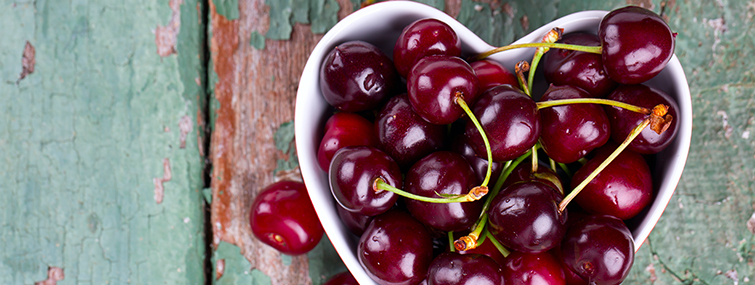We’ve all been there. We binge on burgers, pizza or our favorite takeout delight and the next day we feel the effects, and not just in our waistlines. Ever feel like your skin takes revenge too? Let’s get to the bottom of it – does what you eat really impact your skin?
When it comes to psoriasis and chronic spontaneous urticaria (CSU), chances are that one night of indulgence isn’t going to lead to dramatic consequences. The bigger question is around long-term eating habits – could eating more of some types of foods and less of others impact your disease severity?
There’s no definitive answer here, and you should always talk to your doctor about what diet is best for you. There is, however, some research that helps shed light on what may or may not play a role. Let us break it down for you, keeping in mind the best person to consult is always your doctor.
Let’s start with what to avoid
Histamines
Ever heard of a low-histamine diet? If you’re living with urticaria, you may have. Why? Because some people with urticaria report that their skin gets worse after eating food with high amounts of histamines – this includes things like smoked fish, mature cheese or tomatoes.1 While there is limited scientific evidence, some feel that a low-histamine diet can lead to an improvement in their urticaria.2
Pseudo allergens
These substances can be found in food additives like preservatives or artificial colors. They can also come in the form of natural substances in fruits, vegetables and spices. Here’s why they may matter - a small study found that a ‘pseudo allergen-free’ diet helped about 30 percent of people living with CSU.3 However, the jury is still out - many specialists and experts in the field don’t support this theory, so with limited evidence, this is definitely something you might want to sit down and discuss with your doctor.
Gluten
Going gluten-free to ease psoriasis is a big topic online and indeed some studies have shown an association between psoriasis and celiac disease (an autoimmune disease in which the small intestine is hypersensitive to gluten). Therefore it is not surprising that some people consider a gluten-free diet beneficial for certain people living with psoriasis.4
Inflammation-Inducing Foods
Others have reported improvement of their symptoms when avoiding food that increases inflammation. Although more research is needed, this seems logical as psoriasis is an inflammatory disease. Foods that could increase inflammation include red meat, dairy products, refined sugars and processed foods in general.5
Okay, so what can I eat?!
Enough of what not to eat, let’s talk about the things you should eat – the stuff that could possibly help your skin disease, not hurt it.
Vitamin D
One study found that vitamin D deficiency is common in people with psoriasis,6 and another very small study reported that a high-dose vitamin D therapy improved PASI (Psoriasis Area and Severity Index) scores.7 Similarly, there is evidence for a potential role of vitamin D in CSU.8 While we get most of our vitamin D from sunshine, there are also some foods that are a good source, including oily fish or eggs.9
Omega-3
The often-discussed and praised omega-3 fatty acids are known for their anti-inflammatory and immune-modulating effects. In a small study from 2011, adding omega-3 fatty acid supplements improved the outcome of conventional psoriasis therapy.10 Different kinds of fish such as salmon, herring or mackerel are great sources of this nutrient. And if you can’t be bothered with fish, you can get your share of omega-3 oils from flaxseed, pumpkin seeds or walnuts, just to name a few.11
Antioxidants
Some evidence suggests that antioxidants may be helpful to prevent the physiological imbalance that is related to psoriasis. One of the most widely known antioxidants is vitamin C, which is found plentiful in bell peppers (they actually contain more vitamin C than the prime example, oranges). Vitamin E, found in things like almonds or spinach, can also be a good source, as can beta-carotene, found in carrots.12
Getting past the confusion
If you paid attention while reading this, you might have noticed that some of the discussed foods could be listed in the ‘eat this’ as well as in the ‘don’t eat this’ section – we know it’s confusing! For example, salmon could be beneficial for its vitamin D levels, however if it’s smoked, you would avoid it when following a low-histamine diet.
Natural foods can add to the confusion even more. Since they tend to be a complex combination of carbohydrates, fats, protein, different nutrients and more, they can exert different functions in the human body and can’t be universally put in only one category of ‘good’ or ‘bad’.
If you think that your skin could benefit from a certain diet, it is important to talk to your doctor first – after all, they know best. And when trying a particular diet – whether it be eating more or less of something - a food diary is a great tool. Log what you ate and how you felt so you can better gauge what’s working for you in the long-term.
Ok, that’s all for now. Who’s hungry?









Join one of our communities
and connect with other people with severe skin conditions
Psoriasis facebook community